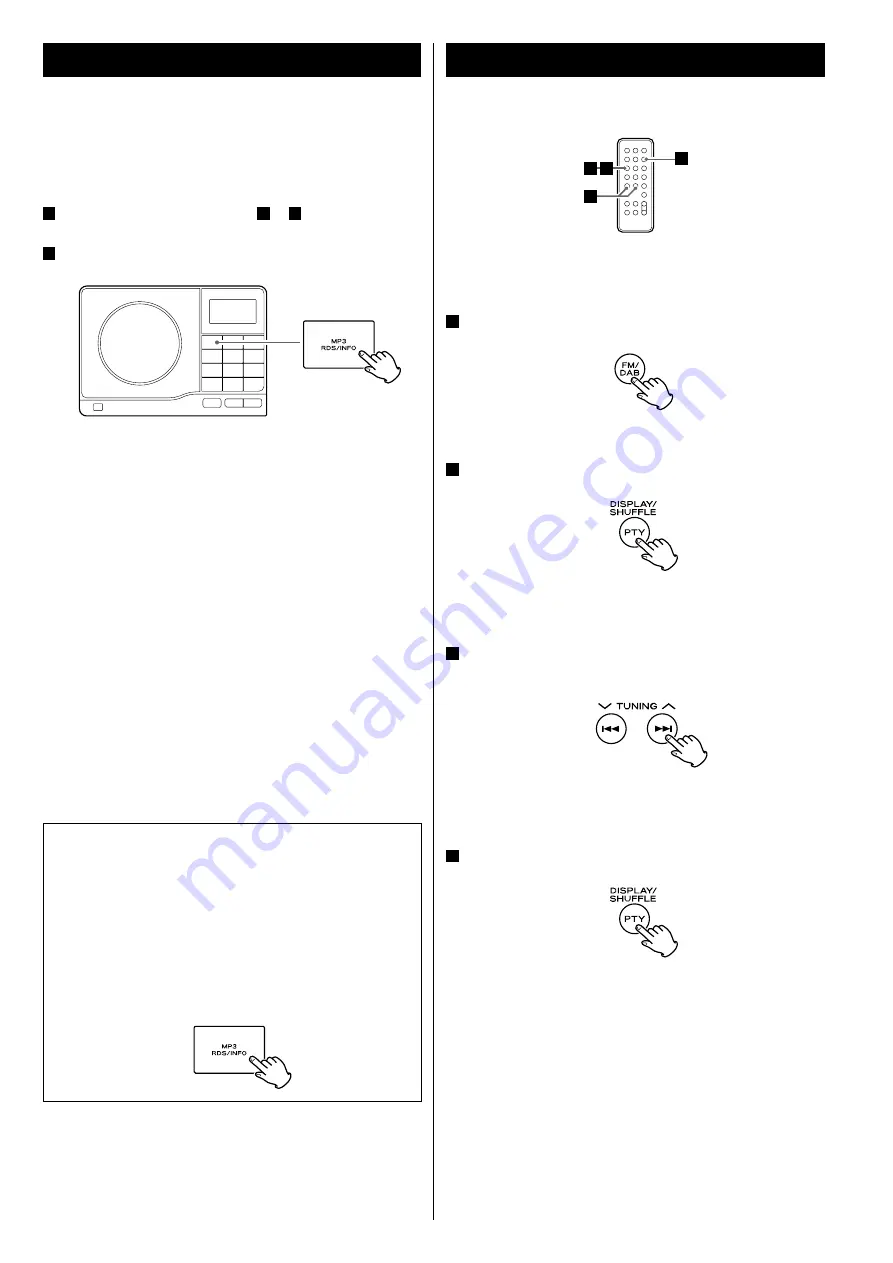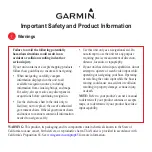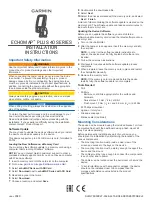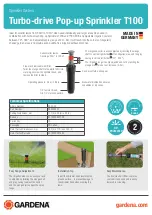
RDS
The Radio Data System (RDS) is a broadcasting service which allows
stations to send additional information along with the regular radio
programme signal.
RDS works on the FM waveband in Europe only.
1
Tune in an FM station (see steps
1
to
3
of page 23).
2
Press the RDS button.
Each time the RDS button is pressed briefly, the RDS mode is
changed as follows:
PS (Programme Service name)
When you select PS, “PS” will blink for about 4 seconds and then
PS or a station’s name will be displayed. If there is no PS data,
the frequency will be displayed.
PTY (Programme Type)
When you select PTY, “PTY” will blink for about 4 seconds and
then the programme type will be displayed.
RT (Radio Text)
When you select RT, “RT” will blink for about 4 seconds and then
the news of stations composed of up to 64 symbols will be
displayed.
If there is no CT/PTY/RT data, RDS mode will be switched to
PS mode automatically.
The clock setting will be automatically adjusted according to
the CT data. If you tune in an RDS station broadcasting incorrect
CT data, the clock might be wrongly adjusted, and that may
eventually affect the timer operation.
No matter which RDS mode is selected, the unit receives CT data
and adjusts the clock.
To turn on or off the CT mode, press and hold the RDS
button for more than 10 seconds.
1
4
2
3
A station can be searched by this function.
1
Select FM by pressing the FM/DAB button.
2
Press the PTY button.
“PTY SEL” appears on the display.
3
Select the desired PTY programme using the skip button
(
.
or
/
).
You can select from 31 kinds.
4
Press the PTY button.
Searching will start.
When the programme that you have selected is found, searching
will stop and the programme type will be displayed.
If the same program type is not found during PTY Search, it will
stop at the beginning frequency.
If you want to stop searching, press the PTY button.
<
<
<
RDS (PTY Search)








































